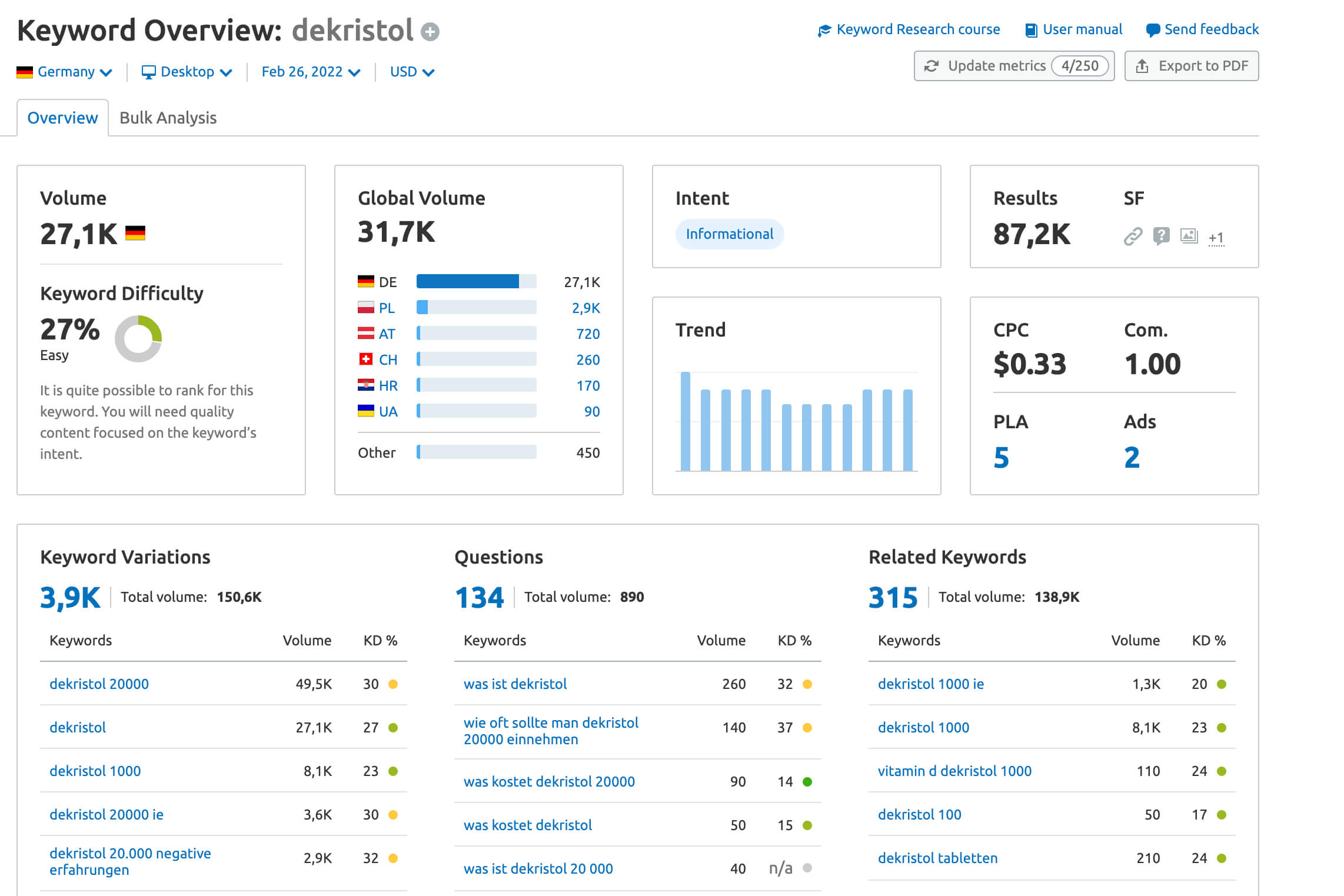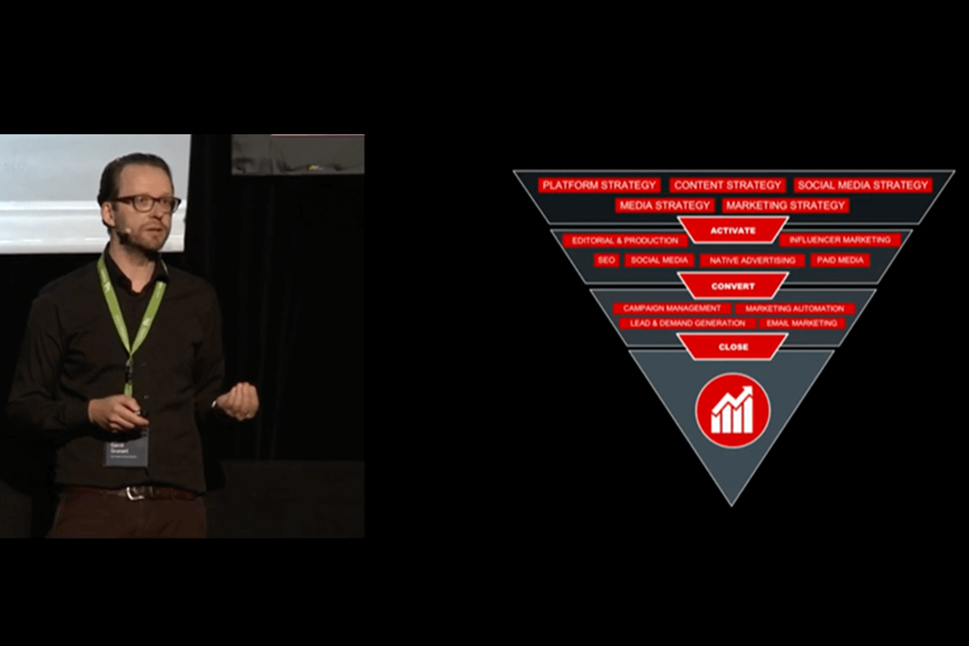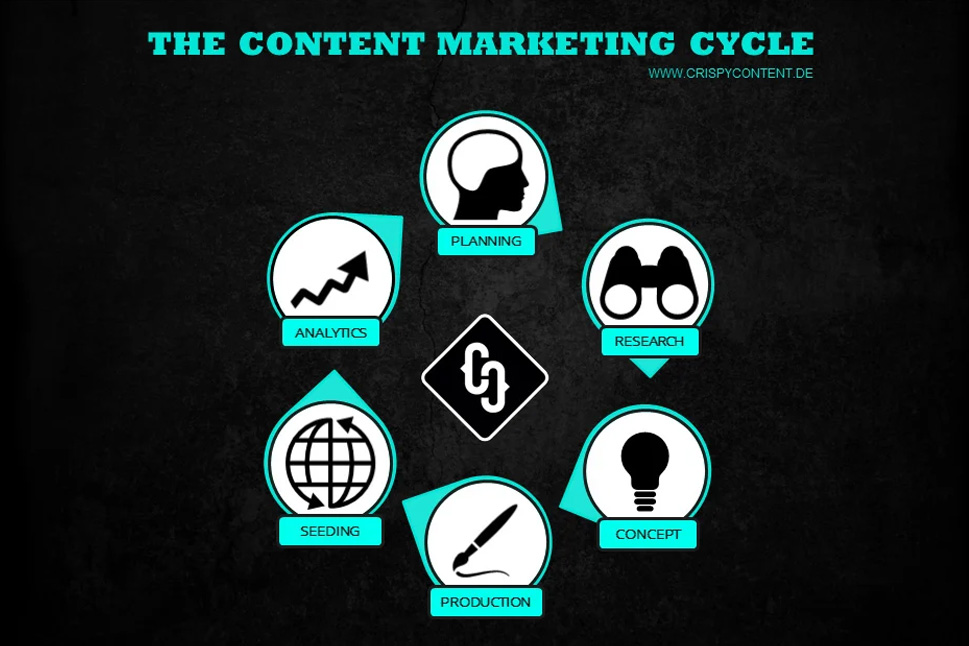SEO For Pharma Companies: Why There is No Way Around It
Last updated on March 18, 2022 at 07:27 AM.It is natural for a company to be visible to its target group, to spread its brand message, to communicate the advantages of its products and to contextualize these advantages in comprehensible usage scenarios. This applies to every industry and every sales channel because it builds trust and sells products wherever customers are. One of the most important marketing and sales channels is Google. In order to be successful on this channel, an entire discipline and industry has been established - search engine optimization, or SEO for short. Search engine optimization is a concern for every business, including pharmaceutical companies. In this article, I will show you why this is the case and how you can tackle this topic.

What is SEO?
SEO, or search engine optimization, describes all the measures taken by a website operator to position his domain and its underlying pages in the best possible way in the results pages of a search engine. Since Google is the most widely used search engine in most parts of the world, SEO is synonymous with optimization for the Google algorithm.
In order to convince Google of the relevance of one's own offer, many measures are possible, which can be divided into
- technical,
- content and
- structural
measures can be divided.
Unfortunately, Google does not show its cards with regard to its evaluation algorithms (who would like to be manipulated voluntarily?), ergo SEO is a never-ending manipulative cat-and-mouse game of
- Analyzing data,
- creating theses,
- Optimize,
- testing and again
- analyzing data.
There are no ultimate truths and Google keeps its world in constant motion. SEO is therefore not a one-time measure, but an ongoing competition between you, your competitors and the Google algorithm.
Why should pharmaceutical companies do this to themselves now? Because it's worth it.
Why is SEO Especially Important For Pharmaceutical Companies?
Google may be a search engine in user perception. However, Google is actually a recommendation engine for information. Billions of users give credence to Google's recommendations by ranking in the top results. An industry,
- whose products require explanation,
- whose manufacturers need to build trust with the target audience in order to sell,
- in which product names and manufacturer brands are hard to relate to,
- in which third, "irregular players" (forums, stores, magazines, etc.) vie for the attention of the target group and thus influence public opinion,
cannot do without visibility in search engines.
An Example: The Search For "Dekristol"
Screenshot Keyword Analysis "dekristol", Semrush, 02.03.2022
What happens when we enter the search term "Dekristol" (27,100 searches per month in Google.de) into the search engine?

Screenshot Google.de search term "dekristol", 02.03.2022
- After the shopping results and the inevitable advertisements, the Apotheken-Umschau is in position 1 with a digitalized and comprehensibly formulated package insert.
- This is followed by a question/answer integration of Google with the following questions
- What does Dekristol do?
- When should one take Dekristol?
- How does vitamin D deficiency manifest itself?
- Is Dekristol 20000 available without a prescription?

Screenshot Google.de search term "dekristol", 02.03.2022
It is Netdoktor that appears several times as an answerer. Only on position 3 is the domain dekristol.de of the manufacturer MIBE Arzneimittel.
Who would be most likely to explain "Dekristol"? Probably hardly the Apotheken-Umschau or Netdoktor. Especially in Google's "Similar Questions", the manufacturer should be the most qualified answerer and provide users with the information that is important to them in order to secure opinion leadership for their own product.
To achieve this, optimization measures must be developed in a strategy and then implemented.
SEO Content Strategy in 7 Steps
In addition to all the technical and structural measures that your digital agency should know inside out, the greatest potential for improvement generally lies in content creation and content optimization. This is a job for editors who understand how search engines work and are empowered to develop an SEO content strategy.
Such a strategy generally consists of seven simple steps,
- the definition of goals and metrics,
- the definition of target audience personas,
- the development of the customer journey,
- development of topic areas, and
- content creation.
With the content created in this way, the optimization process described at the beginning can be started.
Summary
Search engine optimization is important for every company because it ensures the greatest possible visibility in the world's most important source of information. If you want to be the opinion leader for your own brand, your own products and corresponding topics, and you don't want to leave it to competitors or other irregular players, there is no way around developing an SEO content strategy.
 Gerrit Grunert
Gerrit Grunert
Gerrit Grunert is the founder and CEO of Crispy Content®. In 2019, he published his book "Methodical Content Marketing" published by Springer Gabler, as well as the series of online courses "Making Content." In his free time, Gerrit is a passionate guitar collector, likes reading books by Stefan Zweig, and listening to music from the day before yesterday.










.png)











.jpg)

-1.jpg)

-1.jpg)
.jpg)



.jpg)













.jpg)







.jpg)

































.jpg)












































